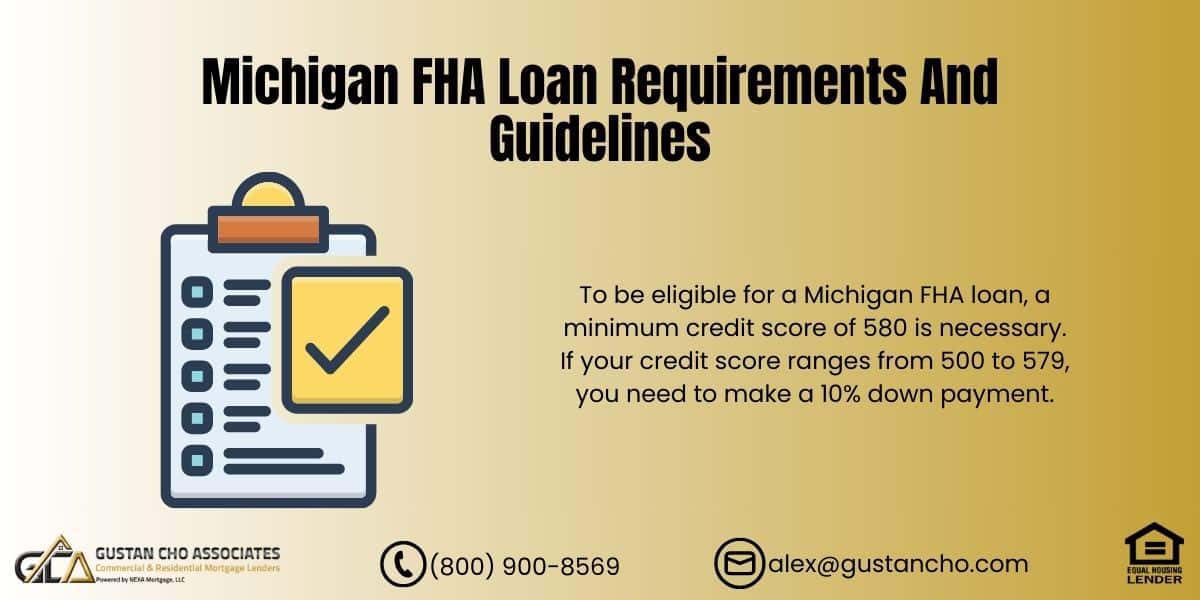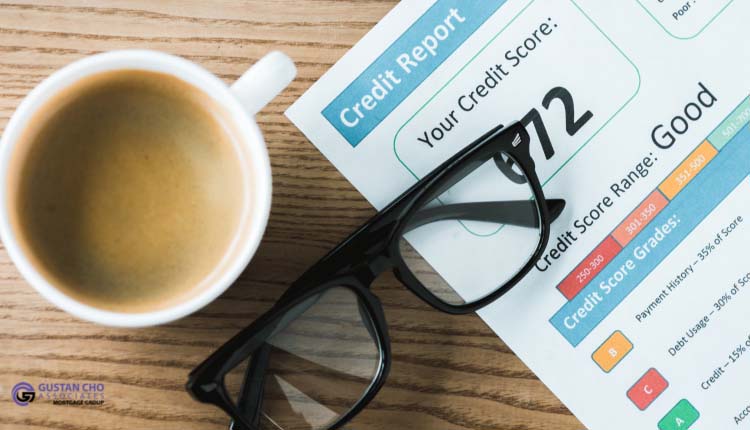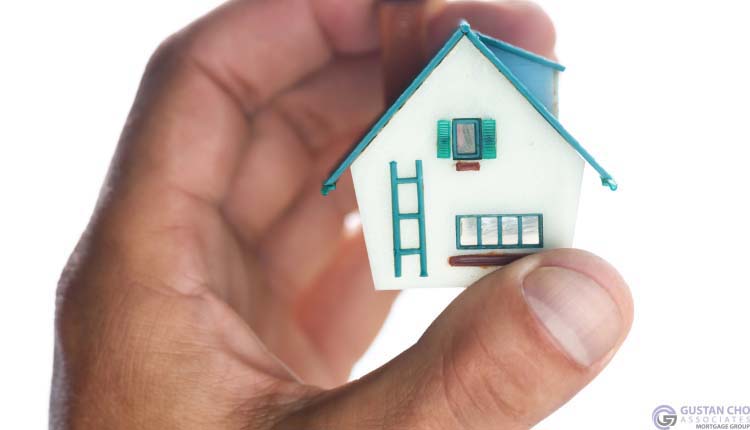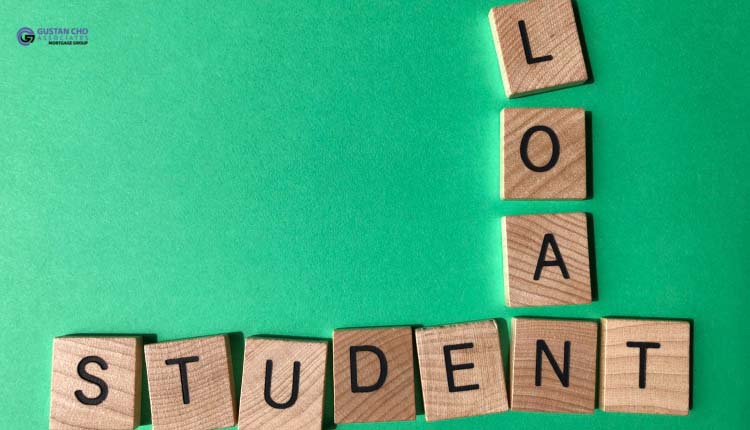You might think owning a home in Michigan is out of reach if you have bad credit, a low down payment, or have faced recent financial setbacks. But what if I told you that these challenges could actually be the key to unlocking the door to your new home? FHA loans are designed specifically for people like you, offering flexible mortgage requirements that make homeownership possible, even when the odds seem stacked against you. Let’s explore the Michigan FHA loan requirements for 2024 and see how you can turn these obstacles into opportunities to own a home.
Why Choose an FHA Loan in Michigan?
Thinking about getting a home loan in Michigan but worried about your credit score or not having a huge savings? Consider looking into FHA loans. These special home loans backed by the government are designed to make buying a home more accessible for folks in all kinds of financial situations. And they come with some pretty sweet perks that make them a solid choice for many Michigan buyers.
Don’t sweat if your credit score isn’t top-notch, maybe around 500 or so. FHA loans don’t need you to have perfect credit. Plus, if you’ve got a credit score of 580 or higher, you only need to put down 3.5% of the home’s price to start. That’s way less than most traditional loans will ask for.
And about those Michigan FHA loan requirements, they’re buyer-friendly. Have you got a lot of debt? FHA loans are chill about higher debt-to-income ratios. This means even if you’ve got some debt, you might still be able to get a loan for that dream home.
So, whether it’s because you’re working on improving your credit, don’t have a ton saved up yet, or are dealing with some debt, FHA loans in Michigan are worth checking out. They make the path to homeownership easier for lots of folks.
Ready to Buy a Home in Michigan? Let’s Help You Understand FHA Loan Requirements!
Contact us today to learn how you can qualify for an FHA loan in Michigan and start your homeownership journey.
Understanding the 2024 Michigan Housing Market
Michigan‘s housing market continues to be dynamic, with demand often outstripping supply, particularly in urban areas like Detroit, Grand Rapids, and Ann Arbor. Home prices have risen steadily, making it a competitive market for buyers. But don’t worry—FHA loans can give you the edge you need to compete, even if you’re looking at fixer-uppers or dealing with a tight budget.
2024 FHA Loan Limits in Michigan
One of the key updates for 2024 is the increase in FHA loan limits, reflecting the rising home prices. Here’s what you need to know:
- Single-family home limit: $472,030 (up from $420,680 in 2022)
- Duplex limit: $604,400
- Three-unit home limit: $730,525
- Four-unit home limit: $907,450
These limits apply across most Michigan counties, but higher-cost areas may have higher limits. This increase means you can buy more homes with an FHA loan in 2024!
Minimum Credit Score Requirements
When talking about Michigan FHA loan requirements for your credit score, it’s more relaxed than you might think:
- If your score is 580 or more, you’re in great shape to just put down 3.5% and get your loan.
- Got a score between 500 and 579? No worries; you can still buy a home. You’ll need to put down a bit more cash upfront—10%, to be precise.
Even if your credit score is on the lower end, don’t lose hope. Many folks in Michigan have been in your shoes, and they’ve worked their way up by fixing their credit bit by bit. Plus, the better your score, the sweeter the deal you’ll get on your loan. Keep at it!
Down Payment Options for Michigan FHA Loans
Michigan FHA loan requirements are pretty straightforward and can really help people become homeowners more easily. One of the first things you might worry about when buying a house is the down payment – that initial chunk of money you need to pay. For a lot of folks, gathering that money can be tough.
But here’s the good news with FHA loans in Michigan: you don’t need to save up as much as you might think. If your credit score is 580 or better, you only need to pay 3.5% of the home’s price. That’s a lot less than the usual 10% or 20% that other loans might ask for. Now, if your credit score is a bit lower, like between 500 and 579, you’ll need to put down 10%, which is still pretty decent.
And here’s a cool tip: You can use gift money for your down payment! That means money from your parents, friends, or even your boss can help you get into your new home. It’s a nice way to make getting a house easier. So, don’t let the down payment scare you away. Michigan FHA loans are here to help.
Debt-to-Income Ratio (DTI) Requirements
When you apply for an FHA loan, your debt-to-income ratio (DTI) matters. This ratio compares how much money you make each month to how much you spend on debt payments.
- Maximum DTI for FHA loans: 46.9% front-end (housing costs) and 56.9% back-end (total debt).
These higher DTI limits are great news for buyers with student loans, car payments, or other debts. If your DTI is higher, having compensating factors—like a large down payment or substantial savings—can help you get approved.
Mortgage loan applicants can use a calculator tool to figure out their proposed housing payments before applying.
Michigan FHA Loan Requirements for Documentation
Getting your paperwork in order is crucial when applying for an FHA loan. Here’s what you’ll need:
- Identification: State-issued ID and Social Security Number (SSN).
- Income Verification: Two years of W-2s or tax returns, 30 days of pay stubs, and proof of any other income sources.
- Assets: Bank statements and proof of funds for down payment and closing costs.
- Credit Explanation: If you have any credit issues, be ready to explain them.
Make sure to gather these documents early in the process to avoid delays.
Looking to Purchase a Home in Michigan? FHA Loans Could Be the Solution!
Reach out now to see how you can take advantage of these benefits and secure your new home.
Michigan FHA Loan Requirements for the Property
When looking into getting a Michigan FHA loan for a house, it’s not just about whether you qualify—the house has to meet some rules, too. It’s like the house is applying for the loan along with you!
- Primary Residence: First up, the house has to be the main place you live. You can’t use this loan for a second home or a place you plan to rent out.
- Property Type: Now, what kind of house can you buy? There are many types – a regular single-family house, a two-family duplex, a three-family triplex, or even a four-family quadplex.
- FHA Appraisal: But, hold on, there’s a catch. The house must pass a special check-up, called an FHA appraisal, to ensure it’s safe and livable. Think of it as a physical exam for the house.
And if you’ve fallen for a house that needs a bit of TLC, there’s still hope. There’s this special thing called a 203(k) loan. It’s neat because it lets you add the cost of fixing up the house to your mortgage. So, it’s like getting a home and a makeover for it all in one.
So, when you hear people talking about Michigan FHA loan requirements, remember that it’s not just you in the spotlight—the house you choose has to make the cut, too.
FHA Mortgage Insurance Requirements
FHA loans need mortgage insurance to protect the lender if you can’t repay the loan. Here’s how it works:
- The initial Mortgage Insurance Premium (MIP) is equivalent to 1.75% of the total loan amount and can be included in the loan.
- Annual Mortgage Insurance Premium (MIP): Paid monthly, ranging from 0.45% to 1.05% of the loan amount, depending on the loan term, amount, and LTV.
If you put down less than 10%, you’ll pay MIP for the life of the loan. With a down payment of 10% or more, MIP lasts for 11 years.
FHA Loan Requirements After Bankruptcy or Foreclosure
When life throws a curveball, and you find yourself dealing with bankruptcy or foreclosure, know that it doesn’t mean you can’t dream of owning a home again. For those interested in getting back on the homeownership path, especially through Michigan FHA loan requirements, here’s a straightforward breakdown:
- Got hit with a Chapter 7 Bankruptcy? No worries. Wait it out for two years after you’re officially discharged, and during this time, focus on getting your credit score back up. After these two years, you’re clear about applying for an FHA loan.
- Dealing with Chapter 13 Bankruptcy? The situation’s a bit different but still manageable. You only need to wait one year to make repayment arrangements, and with the green light from the court, you can start applying for that loan.
- If foreclosure or a deed-in-lieu knocked on your door, you’d need to show patience. A three-year waiting period is required before you can apply for an FHA loan. Use this time wisely to rebuild your credit.
Remember, rebuilding credit and keeping up with timely payments is key during these periods. It shows lenders you’re back on track and ready to take on the responsibility of a mortgage. So, keep your chin up and work towards making those home dreams come true, even after financial setbacks.
Options for Zero Down Payment FHA Loans in Michigan
When you’re thinking about getting a house in Michigan but need more cash on hand for the down payment, don’t worry. There are some cool options with an FHA loan that can help. An FHA loan is a government-backed mortgage, making it easier for folks to get into a home. You might have heard about needing to put money down when you buy a house, but here are some ways around that if you’re aiming for an FHA loan in Michigan:
Gift Funds
This is when someone, like a family member or a friend, gives you money to help cover the down payment or closing costs. It’s like a gift that helps you get into your own home.
Down Payment Assistance Programs
Michigan has your back with programs like the Michigan State Housing Development Authority (MSHDA). These programs can help you cover your down payment or other costs, making it much easier to buy a house even if your savings aren’t huge.
These options shake things up and make getting into a home with a Michigan FHA loan way doable, especially if you’re worried about not having enough saved up for a big down payment.
Combining FHA Loans with Other Financial Assistance
In Michigan, you can combine an FHA loan with other financial assistance programs to make buying a home even more affordable. Here are some options:
- MI Home Loan: Offers low fixed interest rates and low down payments. Available to first-time buyers and repeat buyers in targeted areas.
- Michigan Down Payment Assistance (DPA): Up to $10,000 in zero-interest loans for down payments and closing costs, repayable only when you sell or refinance.
- Mortgage Credit Certificate (MCC): Reduces your federal tax liability, making homeownership more affordable.
- Habitat for Humanity: Provides affordable housing options with guaranteed low payments.
These programs can be combined with an FHA loan, making homeownership within reach for many Michigan residents.
FHA 203(k) Loans: The Perfect Solution for Fixer-Uppers
The Michigan housing market can be competitive, especially with rising home prices. If you’re struggling to find your dream home, consider buying a fixer-upper with an FHA 203(k) loan. This mortgage enables you to fund a property’s acquisition and renovation using a single loan.
- FHA 203(k) Streamline Loan: Ideal for smaller projects, with a $35,000 limit.
- Full FHA 203(k) Loan: No set limit on renovation costs, as long as the final loan amount doesn’t exceed the FHA limit.
With an FHA 203(k) loan, you can turn a rundown property into your perfect home, all while sticking to your budget.
FHA Loan Requirements: 2024 Updates You Need to Know
For 2024, FHA loan limits have increased, reflecting Michigan’s rising cost of homes. Here are some key updates:
- Loan limits increased: You can borrow more to buy your home.
- Higher interest rates: As the economy stabilizes, mortgage rates are expected to rise slightly. However, FHA loans still offer competitive rates, especially for borrowers with lower credit scores.
- More flexible underwriting: Lenders are increasingly open to working with borrowers with non-traditional credit histories.
These updates make FHA loans an attractive option for Michigan homebuyers in 2024.
Want to Own a Home in Michigan? FHA Loans Can Help You Get There!
Reach out now to learn more about FHA loan requirements in Michigan and get started on your path to homeownership.
How to Apply for an FHA Loan in Michigan
Thinking about buying your first place? Getting an FHA loan can be a smart move, especially if you’re in Michigan. But where do you even start? Let’s break it down into simpler steps:
- Check Your Credit Score: First, know where you stand with your credit. It’s like looking in the mirror before you head out. If there’s something off, you’ve got some time to fix it.
- Gather Documentation: Imagine you’re going on a treasure hunt, but instead of a map, you need your ID, how much money you make, where you keep your money (bank statements), and a few other bits and bobs.
- Get the Green Light First (Pre-Approved): Before you start dreaming of your new place, getting pre-approved is like getting a VIP pass. It tells everyone you’re serious and not just window shopping. Plus, it gives you a leg up with the sellers.
- Find a Home: This is the fun part. You get to shop around for your future home. This is where a good real estate agent comes into play, especially someone who knows the ins and outs of Michigan.
- Apply for the Loan: Once you’ve found your home sweet home, it’s time to submit your application, along with all required documentation.
- Wrap It Up: Your lender will then take you through the home stretch – appraisal, the behind-the-scenes financial stuff (underwriting), and finally, making it official (closing).
Remember, Michigan FHA loan requirements are there to ensure everyone plays by the rules, so keeping them in mind will help you navigate the process smoothly. It’s all about taking it one step at a time.
Why Choose Gustan Cho Associates?
At Gustan Cho Associates, we specialize in helping homebuyers who might not qualify with other lenders. With no lender overlays and a focus on government-backed loans, we’ve helped thousands of Michigan residents achieve their dream of homeownership. Our team is available seven days a week to answer your questions and guide you through the mortgage process.
Get Started on Your FHA Loan Today!
If you’re ready to buy a home in Michigan, there’s no better time than now. With the updated Michigan FHA loan requirements for 2024, you have more opportunities to qualify and buy the home you’ve always wanted. Contact us today at Gustan Cho Associates to start your journey toward homeownership. Call us at 800-900-8569, text us, or email us at alex@gustancho.com.
FAQs: Michigan FHA Loan Requirements And Guidelines
- 1. What credit score do I need for an FHA loan in Michigan? To be eligible for a Michigan FHA loan, a minimum credit score of 580 is necessary. If your credit score ranges from 500 to 579, you need to make a 10% down payment.
- 2. How much down payment do I need for an FHA loan in Michigan? If your credit score reaches 580 or more, you can make a down payment of as little as 3.5%, according to the Michigan FHA loan requirements. If your score is lower, you must provide a 10% down payment.
- 3. Can I get an FHA loan in Michigan if I have a lot of debt? One of the Michigan FHA loan requirements allows higher debt-to-income ratios, meaning you can still qualify even if you have significant debt.
- 4. What are the 2024 FHA loan limits in Michigan? The Michigan FHA loan requirements for 2024 have set loan limits at $472,030 for a single-family home, with higher limits for multi-unit properties.
- 5. Can I use gift money for my down payment on an FHA loan in Michigan? Yes, Michigan FHA loan requirements allow you to use gift funds from family, friends, or even your employer to help with your down payment.
- 6. What documents do I need to apply for an FHA loan in Michigan? To meet Michigan FHA loan requirements, you must provide identification, proof of income, bank statements, and an explanation of any credit issues.
- 7. Is mortgage insurance required for FHA loans in Michigan? Yes, the Michigan FHA loan requirements include mortgage insurance, which you’ll need to pay both upfront and annually as part of your monthly payment.
- 8. Can I get an FHA loan in Michigan after bankruptcy or foreclosure? Yes, Michigan FHA loan requirements allow you to apply for a loan two years after Chapter 7 bankruptcy or three years after a foreclosure, provided you’ve re-established good credit.
- 9. What types of properties qualify for FHA loans in Michigan? Michigan FHA loan requirements allow you to purchase single-family homes, duplexes, triplexes, and four-unit properties as long as the property will be your primary residence.
- 10. How do I start the process of getting an FHA loan in Michigan? To begin, check your credit score, gather your documents, and contact a lender familiar with Michigan FHA loan requirements to get pre-approved and start your home search.
If you have any questions about Michigan FHA Loan Requirements, please contact us at 800-900-8569. Text us for a faster response. Or email us at alex@gustancho.com. The team at Gustan Cho Associates is available 7 days a week, on evenings, weekends, and holidays.
This blog about Michigan FHA Loan Requirements And Guidelines was updated on August 13th, 2024.
Ready to Secure an FHA Loan in Michigan? We’re Here to Guide You!
Contact us today to discuss how we can help you qualify for an FHA loan in Michigan.










